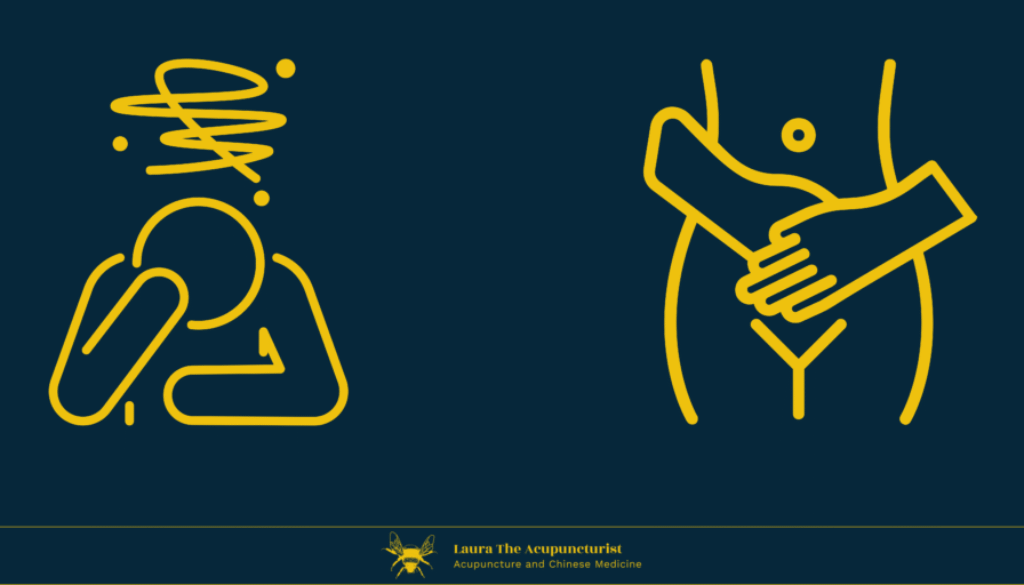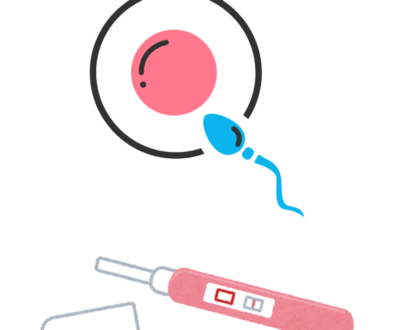Hope for those with PMDD: Premenstrual Dysphoric Disorder
Premenstrual Dysphoric Disorder (PMDD) is a severe form of PMS that affects around 5-10% of people with menstrual cycles. The symptoms of PMDD are both physical and emotional, and can have a profound impact on quality of life. PMDD generally starts one to two weeks before the onset of menstruation and subsides within the first few days of the period.
Symptoms of PMDD may include:
Emotional Symptoms: Intense irritability, mood swings, anger, anxiety, depression, and difficulty concentrating.
Physical Symptoms: Fatigue, bloating, joint or muscle pain, breast tenderness, and headaches.
For many, PMDD affects their work, relationships, and daily functioning, leaving them feeling overwhelmed and exhausted month after month.
Ways to Help Yourself with PMDD
Managing PMDD is about understanding your body and finding ways to bring balance to your hormonal and emotional state. Here are some lifestyle changes and self-care practices that may help ease the symptoms:
Keep a Symptom Diary: Tracking your symptoms can help you identify patterns in how you feel each cycle. This can provide a clearer picture of what’s happening and be useful for both you and any health professionals you work with.
Dietary Adjustments: Incorporating a diet rich in whole foods, vegetables, and lean protein can help reduce symptoms. Limiting sugar, caffeine, and alcohol may also help balance mood and energy levels.
Regular Exercise: Exercise can help release endorphins, which are the body’s natural mood elevators. Activities like yoga, walking, or swimming can be particularly beneficial for reducing PMDD symptoms.
Reduce Stress: Finding ways to reduce stress can be crucial in managing PMDD. Practices like meditation, deep breathing, journaling, and spending time in nature can help reduce emotional distress and bring more balance to your life.
Sleep: Ensure you get enough quality sleep each night, as lack of sleep can exacerbate PMDD symptoms. Consider setting up a calming bedtime routine and avoiding screen time before bed.
How Can Acupuncture and Herbal Medicine Help with PMDD?
Acupuncture and Chinese herbal medicine offer a gentle and effective way to address the root causes of PMDD and improve quality of life. I have worked with many women diagnosed or experiencing PMDD symptoms, and I’ve seen firsthand how these holistic approaches can help people regain a sense of emotional balance and well-being.
How Acupuncture Works for PMDD
In Traditional Chinese Medicine (TCM), PMDD is often linked to an imbalance in the Liver Qi and a disruption in the flow of energy (Qi) and blood throughout the body. Stress and emotional strain can easily impact the Liver, causing Qi stagnation, which may present as mood swings, anger, or depression – common signs of PMDD.
Acupuncture works to:
Regulate Hormones: Acupuncture can help bring hormones back into balance, supporting both the menstrual cycle and the emotional symptoms that occur during PMDD.
Move Stagnant Qi: Specific acupuncture points are used to move stagnant Liver Qi, which helps reduce irritability, frustration, and mood swings.
Lower Stress Levels: Acupuncture promotes the release of endorphins, which naturally relax the body and reduce stress, making it easier to cope with PMDD.
Enhance Emotional Well-being: Weekly acupuncture treatments for around three months can help rebalance hormones, improve mood, and reduce the intensity of PMDD symptoms. Many patients find that acupuncture helps them feel more emotionally grounded and less overwhelmed.
Chinese Herbal Medicine for PMDD
Chinese herbs are a powerful addition to acupuncture when addressing PMDD. A customised herbal formula created for your unique symptoms and presentation. Many herbs are used to regulate the menstrual cycle, calm the mind, and alleviate specific symptoms such as mood swings, fatigue, and digestive issues.
Chinese herbal medicine focuses on nourishing the Liver and Kidney systems, moving stagnation, and restoring balance. The goal is to harmonise the body’s internal environment, which helps reduce both physical and emotional symptoms associated with PMDD. With consistent herbal support, people with PMDD often notice a reduction in symptoms over a period of three cycles and some may require a maintenance or full dose for a while longer, if needed.
A Gentle, Holistic Approach to PMDD
For those struggling with PMDD, it is important to know that there are natural, effective ways to regain control of your body and emotions. Acupuncture and Chinese herbal medicine offer a gentle, holistic approach to both physical and emotional healing.
In my practice, I often recommend weekly acupuncture treatments and continuous herbal support for at least three menstrual cycles to achieve the best results. This time frame allows us to work with the body’s natural rhythm, regulate hormone levels, and create a more stable emotional environment. I’ve seen firsthand how this can make a significant difference, enabling many women to live happier, more balanced lives.
If you are interested in exploring how TCM could help you with PMDD, please don’t hesitate to reach out. Remember, painful periods and emotional overwhelm are not something you just have to endure—there is always help available.




